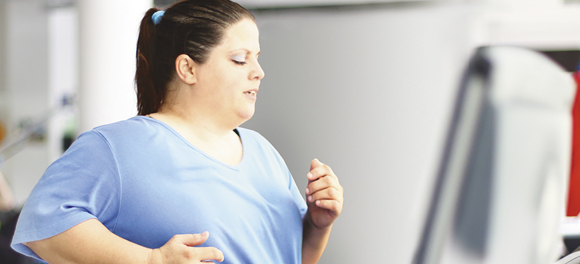Is Weight Loss Surgery for Me?

How do you know whether weight loss surgery is for you? Will it be the weight control solution you have been searching for for years? Or will it be a decision you regret? Nobody can answer that for you, but here are some considerations as you think about whether weight loss surgery is for you.
The Qualifying Criteria
You are not a candidate for bariatric surgery unless you meet certain criteria set by your surgeon or, if applicable, your healthcare coverage plan. The standard criteria are:
- Body Mass Index (BMI) over 40 or BMI 35 with an obesity-related comorbidity, such as type 2 diabetes, high cholesterol, or sleep apnea.
- Confirmation that your obesity is not caused by an underlying condition that would make weight loss surgery ineffective.
- A psychological exam to show that you are capable of sticking to the post-op diet and lifestyle changes that are necessary.
- Previous documented attempts at losing weight with diet and exercise.
Ineffectiveness of Previous Efforts
Weight loss surgery is a last resort, not a first try at losing weight. It is for patients who have been obese for years and who have tried to lose weight using lifestyle changes, such as a modified diet plan and a formal exercise program. Many weight loss surgery patients try “every diet under the sun” before deciding that it is time for WLS. They may have had trouble losing any weight at all, or may have lost weight initially but been unable to keep it off.
Readiness to Change
Weight loss surgery is just the beginning. The way you eat after weight loss surgery determines how well you will be able to control your weight for the rest of your life. You need to be ready to change if you want to be successful with weight loss surgery. No longer will you be able to down a pizza or hit the drive-through on a whim.
Are you ready to possibly:
- Give up coffee and regular and diet soda?
- Cut sugary treats and fried foods, especially with gastric bypass?
- Pass on the alcoholic offerings at home, parties, and restaurants?
- Count protein, slash carbs, and measure portions?
Addressing Other Issues
Weight gain does not always take place in a vacuum, and weight loss does not solve other problems you might have in your life. First, identify why you became overweight in the first place, and what is keeping you from losing the weight. Is weight loss surgery the answer, or do you need to first deal with an abusive relationship or lack of self-confidence, for example?
Emotional eating is a common reason for weight gain. If you tend to eat your feelings away, you are best off figuring out other ways to handle your feelings before you get surgery. Can you use walking as a form of therapy? Maybe you can join an in-person or online support group to turn to when you feel sad, lonely, or angry.
If your emotional eating is related to a specific problem, such as stress at work, your best bet may be to handle the problem before getting WLS. That could mean finding a healthy coping mechanism, or it could mean getting counseling to help you work through the source of stress. It could even mean finding a new job, as scary as that sounds.
Consider Replacement Addictions
Replacement addictions are common after weight loss surgery. They happen when you give up food – which can be an addiction – for a different addiction. Instead of turning to food for comfort, entertainment, or companionship, some weight loss surgery patients turn to “replacement addictions” or “cross addictions” They may take up smoking, or start to abuse alcohol. Replacement addictions can also be healthier than eating; some weight loss surgery patients become gym rats or take up gardening, sewing, or other hobbies.
As you consider weight-loss surgery, think about the possibility of food addiction being replaced by replacement addictions. What role does food play in your life now? What do you see replacing that emotional or physical role after surgery?
The decision to get weight loss surgery requires a lot of soul searching for most candidates. These points can help you work through some of the doubts you may have as you try to decide what is best for yourself.



April Williams 0
Posted
I weigh 188 lbs do I qualified to have this surgery
Share this comment
Link to comment
Share on other sites